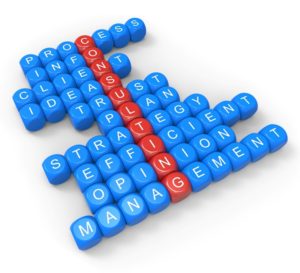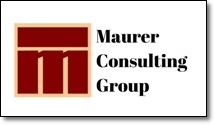No, don’t call ‘Ghostbusters’ when you need help with your Small Business. If you saw the original Ghostbusters movies back in the mid- to late-1980s, you remember how messy and destructive that kind of help can be. Definitely not the kind of assistance you want. Unless poltergeists have invaded your company, it’s best to look for small business experts who can provide help in specific parts of your business that aren’t going well.
Small businesses operate on ‘minimal’ these days. Minimal budgets, minimal time to get things done, minimal staff are typical of today’s modus operandi. You name it; bare minimums have become the norm for operating a small business. The economy is better, more people are getting hired, but a small business seems to always run based on minimums. Small business owners are a cautious lot. We think we can do it all alone. (BIG mistake!) Running a small business using well formulated systems and processes can be a good thing. But, more often than not, that just isn’t how entrepreneurs start out.
Working with too few staff members to efficiently carry the workload can be disastrous. Customers don’t get served well, marketing to attract new, better customers doesn’t happen, orders don’t get filled and projects don’t get completed. Way too much work still falls in the lap of the owner. They are unable to even think about problems within the company structure that need attention. Everyday seems like just another Chinese Fire Drill. (If you aren’t old enough to know what that is, call me and I’ll explain.) Company growth and progress come to a screeching halt.
Time to Bring in a Small Business Expert for Assistance
 What to do? How to fix things? Where can you get help to get beyond the log jam slowing your progress? You can always bring in some expert help, but who, and which type? There are so many different ‘titles’ floating out there that it is hard to know which one can help you do what needs done? Advisers, consultants, coaches, mentors – the list goes on and on. What are the differences? Are there any differences? Just those two simple questions can make an entrepreneur throw up their hands and ignore the unsolved problems a little bit longer. No action, no results. The longer the problems exist, the longer your company will be on hold, stalled on a plateau.
What to do? How to fix things? Where can you get help to get beyond the log jam slowing your progress? You can always bring in some expert help, but who, and which type? There are so many different ‘titles’ floating out there that it is hard to know which one can help you do what needs done? Advisers, consultants, coaches, mentors – the list goes on and on. What are the differences? Are there any differences? Just those two simple questions can make an entrepreneur throw up their hands and ignore the unsolved problems a little bit longer. No action, no results. The longer the problems exist, the longer your company will be on hold, stalled on a plateau.
5 Types of Small Business Experts
Small Business Coaching
Small business coaching focuses on the broad, long term view of what your company will become. It helps define how to take a firm to higher plateaus through clearly stated goals, objectives and strategies. Focus is on improving the business. Once areas in need of improvement are identified, a business coach helps set and prioritize goals and develop plans for achieving them. Coaches, for a fee, help identify company strengths and weaknesses as a basis for where work needs to be done.
Think of a coach as your personal business cheerleader, offering encouragement and motivation while requiring accountability and commitment. The coach’s focus is on taking the client to their own highest level of leadership and business efficiency to help the company reach its ultimate level of success.
Executive Coaching
While a business coach focuses efforts on improving a business, its systems, processes and operations, an Executive Coach works to improve one or more leaders, or team members. As the only, or one of the few leaders of your company, you probably realize it can get lonely at the top. Few, if any, others share the stress and strain that comes with your position. Few will openly tell you about weaknesses you might exhibit in the course of doing your job. An outside, executive coach can fill that need for overworked small business leaders. Download this list of Ways an Executive Coach can help your business.
Think of your Executive coach like those leading sports teams. Their job is to work with each player, identify their strengths and weaknesses and put them on track to become the best contributing team member they can be. Executive coaching is usually focused on more short- or near-term projects like developing or honing specific management and leadership skills that can be accomplished with a short-term engagement over 3-6 months.
Small Business Mentor
Using their extensive experience in the same, or a similar field as their mentee, a mentor takes on a somewhat long term relationship. Mentors provide guidance based on their own more extensive business knowledge and experiences. A mentor-mentee  relationship is a bit less formalized than with a business coach. They work together to help the less experienced mentee grow and expand skill levels necessary to operate and grow their business. Although the world is wrapped around technology and virtual communications, finding a mentor relatively close to home often works better in these relationships.
relationship is a bit less formalized than with a business coach. They work together to help the less experienced mentee grow and expand skill levels necessary to operate and grow their business. Although the world is wrapped around technology and virtual communications, finding a mentor relatively close to home often works better in these relationships.
Some mentors are paid, others are not. Both types have their uses in starting and building a business. A mentor, unlike a coach, shares their personal business experiences with you. Both paid and unpaid mentors will expect commitment and accountability from clients. They are usually anxious to help, but like anyone else, they don’t want to have their time wasted on futile efforts without positive results.
Small Business Advisor
As the name implies, small business advisors give business advice to small and mid-sized companies. Ad vice can be in areas of management, marketing or even finance. The advisor analyzes a new company’s business plan or operations if they have been operating for a while. Following the analysis phase, they can help identify areas of the  company that need useful focus and plans to enhance improvements. Following the research and analytic phase, the advisor recommends and prioritizes changes that you can make within the company to move it forward in a highly focused direction.
company that need useful focus and plans to enhance improvements. Following the research and analytic phase, the advisor recommends and prioritizes changes that you can make within the company to move it forward in a highly focused direction.
The entire advisory process depends on your advisor’s knowledge of business, the marketplace and consumers. Their suggestions are intended to help improve company profits, growth and success. Business knowledge, analytic and communication skills are imperative for this type of assistance.
Small Business Consultant
A small business consultant works with small and mid-sized businesses to identify problem areas, suggest changes and remedies. Like a business advisor, the consultant analyzes the company and its operations to identify areas in need of change and improvement.
Often  the consultant will continue on after the exploratory and analytical phases to help implement necessary changes. For instance, a consultant may be brought in to help the company prepare succession or exit plans to assure the best leadership is found and trained as necessary to take over the firm and move it successfully into the future. If a firm has neither the time nor employees to make all of the recommended steps happen, they may hire the consultant to take the project through to the end.
the consultant will continue on after the exploratory and analytical phases to help implement necessary changes. For instance, a consultant may be brought in to help the company prepare succession or exit plans to assure the best leadership is found and trained as necessary to take over the firm and move it successfully into the future. If a firm has neither the time nor employees to make all of the recommended steps happen, they may hire the consultant to take the project through to the end.
A small business can quickly grow beyond its owner(s) ability to keep doing everything due to budget constraints. As our company matures, areas like technology, human resources or marketing may need to grow at a much faster pace than was necessary as a start up. For these project types, a specialized consultant can be a big help and wise investment.
Find the Right Business Expert to Help Your Business Succeed
Experienced Business Specialists
Select from professionals familiar with small or mid-sized businesses, specialists in the area that you suspect you need assistance. If financial issues are in need of help, find a qualified financial advisor or consultant. If you know that your technology needs updated and improved, bring in someone with IT (Information Technology) experience to help you find the best hard- and software solutions for your company’s needs.
Communications
It is important that you are able to form a good relationship with the small business experts you engage. Select someone you can easily communicate with. Small business experts will be an integral part of your team while you are working together. You need to feel comfortable sharing your deep, dark company secrets with them. Know-Like-Trust is the key to a good business advisory relationship. Your expert will ask you difficult questions about your business. To be effective, you need to feel comfortable providing them with appropriate responses. Look for honesty and transparency in the small business expert you choose.
Confidentiality
Confidentiality is a critical facet of any type of consulting relationship. It is important that any business expert who works with you and digs deep into how you operate your business is willing to sign a confidentiality agreement. If they balk at doing so, keep looking for someone else who places as high a value on your privacy as you do.
Collaboration
All types of business experts and professionals normally take a collaborative approach to clients and projects. Remember, they are outside team members working toward the same goals and objectives you are – profitability, growth and success. Further, it is also important that they understand your Vision and Mission – or can help you develop one that fits your company. You want someone who will work closely with you. You need them to talk ‘to’ you, not ‘at’ you. It’s all about teamwork.
Terms and length of contract
Before signing on with any business expert, understand how long it will take to accomplish your needs. If you feel the time frame seems too long, don’t be afraid to ask why. Any good expert will be able to tell you the parameters they will need to address to complete your project. Like any service business, the more you ask them to accomplish, the longer it will likely take, affecting the fees. Be prudent, don’t rush into an arrangement without investigating several experts first.
Conclusion
Hiring a consultant, advisor, coach or mentor can help move your business forward much faster than you likely can on your own. Just finding time to think about necessary changes for growth is often out of reach for a small business owner. The experts bring business knowledge and skills you may not possess. They can schedule time to accomplish the necessary project(s) in a short period of time while you keep your business running.
Locate the best expert(s)to help you identify your business needs. Sometimes, small business owners and leaders think one thing is their major issue, but it is not. After some deep digging, your needs will become clear. Focused, prioritized plans and solutions can then be developed to move you closer to Success within a reasonable time frame.
Don’t let your company stall or stagnate when it could become more profitable and grow more rapidly. Really, wouldn’t moving ahead over a period of three to six months be better than waiting a year or two just to begin thinking about change and growth? A small business expert could be the answer to your needs.







I like that you explain the various experts and what they do, such as how small business consultants can analyze companies to find areas that need change and improvement. When choosing them, it would probably be a good idea to figure out what experts you want. This could help you then research them online to find experienced small business consultants or other professionals that are available to help you whenever you need their services.